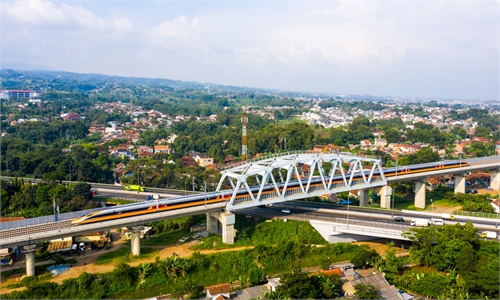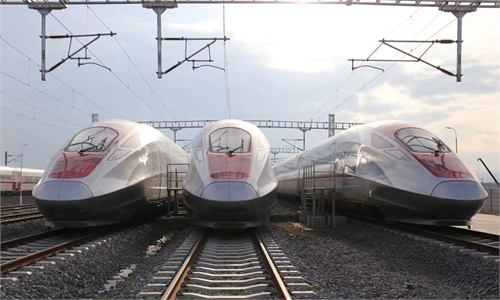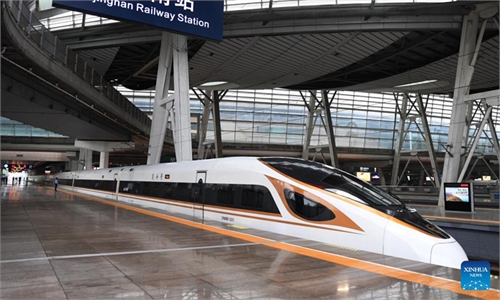Jakarta-Bandung HSR enters intensive testing stage, paving way for commercial operation
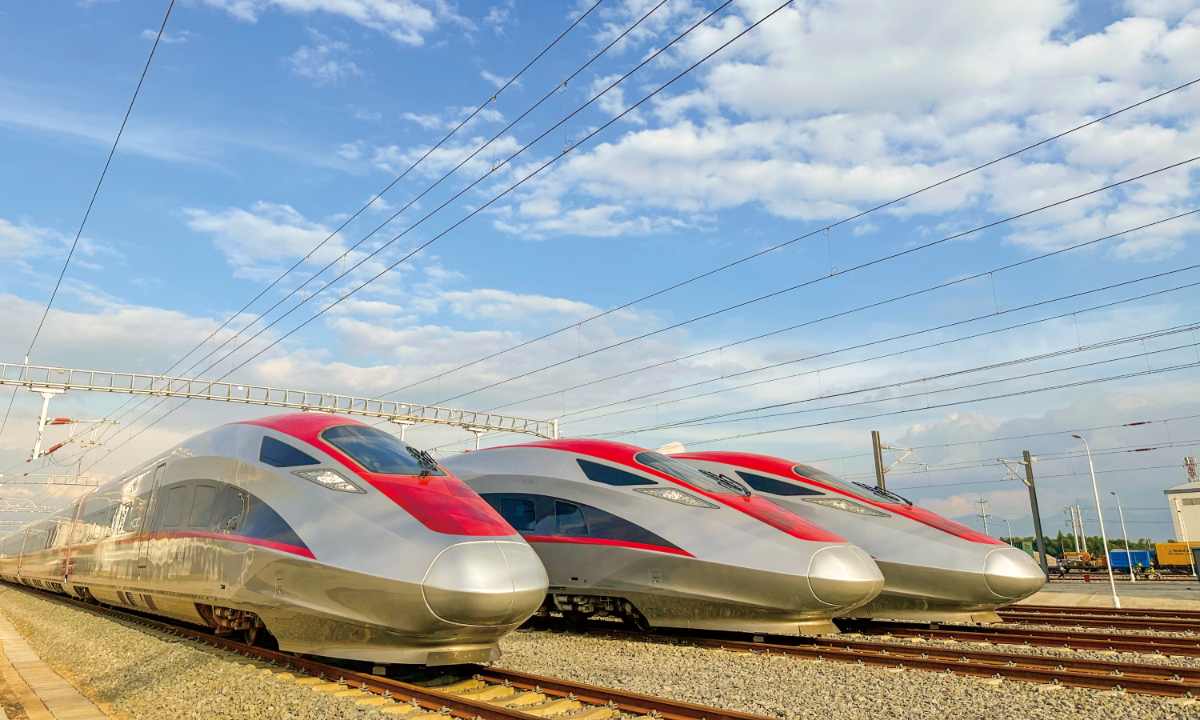
The Jakarta-Bandung High-Speed Railway trains at the parking area of the Tegalluar Station, Bandung, Indonesia Photo:He Zhuoqian/GT
The Jakarta-Bandung High-Speed Railway (HSR), a landmark project under the China-proposed Belt and Road Initiative (BRI), is now undergoing intensive joint commissioning and testing, paving the way for commercial operations scheduled to begin within this year, the Global Times learned.
The HSR, once put operation, will be the first HSR in Southeast Asia with a design speed of 350 kilometers per hour. It also marked the first time that Chinese high-speed railway technology was implemented in an all-round way abroad, with whole system, all elements and the whole industrial chain.
In June, the comprehensive inspection train of the HSR reportedly reached over 350 km/hour for the first time, as part of the incremental speed tests that started in May. These tests will provide strong support for subsequent trials and actual operations.
The route connects Indonesia's capital Jakarta and its fourth-largest city Bandung, capital of West Java Province, one of the world's most heavily populated regions. Spanning 142.3 kilometers and covering a massive population of 40 million, it will cut the journey between Jakarta and Bandung from more than three hours to just 40 minutes. The Global Times experienced a jolly highway drive from the capital to Bandung in July, which took about 3.5 hours including the time stuck in traffic. Locals told us it sometimes could take up to six to seven hours during peak hour.
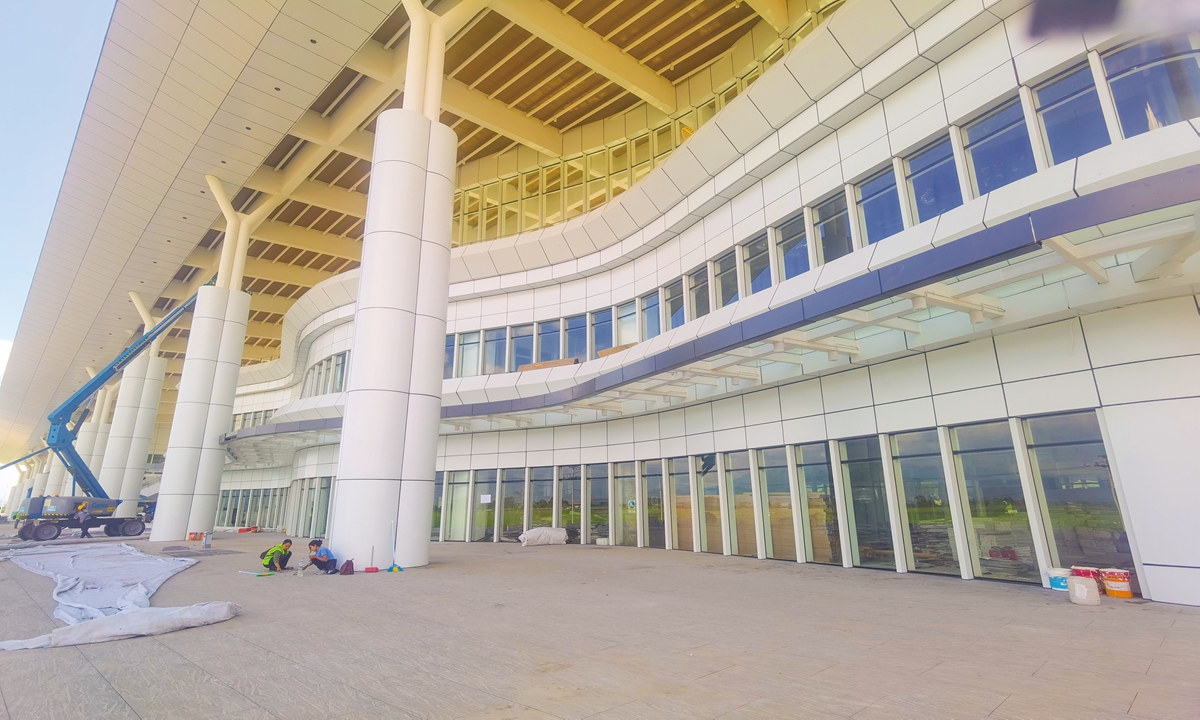
A view of the Tegalluar Station, Bandung, Indonesia Photo: Hu Yuwei/GT
It is expected that the opening of the rail link will largely alleviate traffic snarls, which reportedly lead to an economic loss of about 65 trillion rupiah ($4.2billion) a year across the Indonesian economy and curtail its development potential.
The HSR includes four stops including Halim, Karawang, Padalarang, and Tegalluar. Halim is the inaugural station located in the capital of Jakarta, and Tegalluar sits at Bandung, a famous tourism city with volcanic attraction. The other two stations are located near Indonesia's industrial bases, home to a number of foreign enterprises and industrial parks.
As such, it is expected that the railroad will significantly boost Indonesia's local economy, and help the Southeast Asian country create more development opportunities.
Zhang Chao, executive director of the board of PT Kereta Cepat Indonesia China (KCIC), told the Global Times that during the construction process alone, the project created an accumulated 51,000 jobs for local residents, and the Chinese side is now helping Indonesia to train qualified high-speed railway drivers. KCIC is a consortium of Indonesian and Chinese firms responsible for developing and operating the Jakarta-Bandung HSR line.
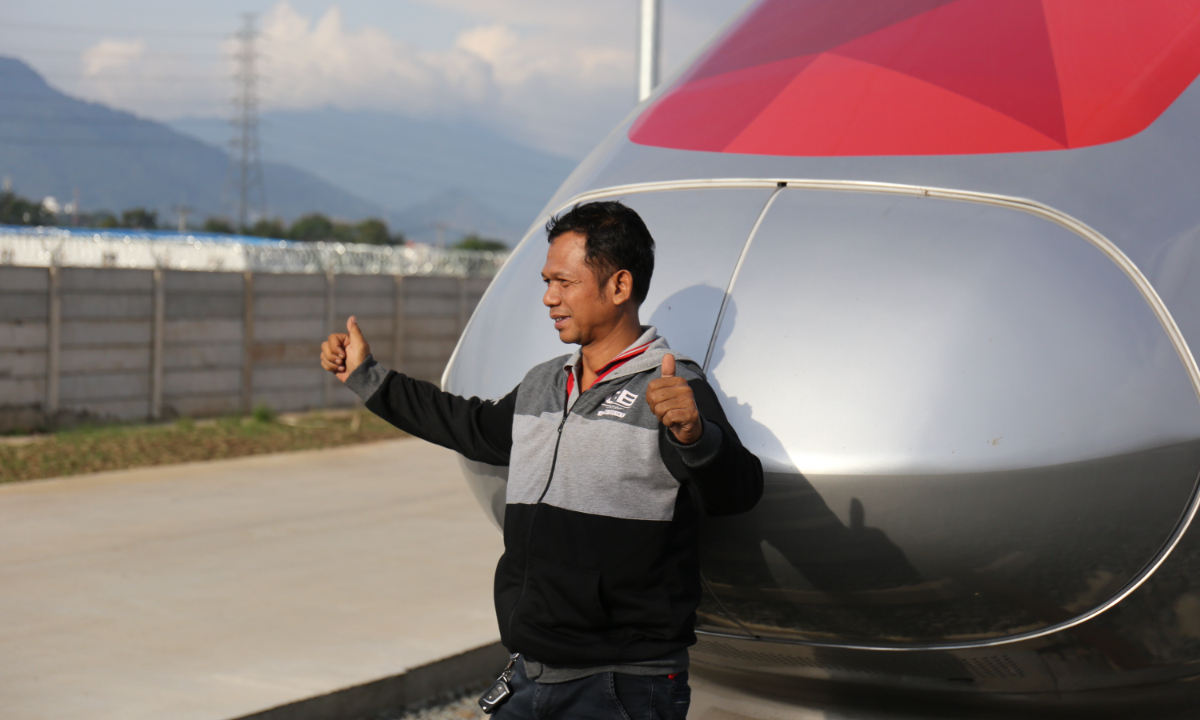
A local poses for a photo in front of the Jakarta-Bandung High-Speed Railway train in Bandung, Indonesia. Photo: Zhao Juecheng/GT
With regard to fares, Zhang said that the fares will be set in "a reasonable range," taking account of the cost, what people can afford and return on investment. "The pricing mechanism is based on a feasibility study, with advice from major consulting firms including KPMG and PWC."
According to Zhang, the design of the electric multiple unit (EMU) trains have been adapted to Indonesian local culture. For example, the trains are painted in red and white, drawing upon the red-white national flag of Indonesia.
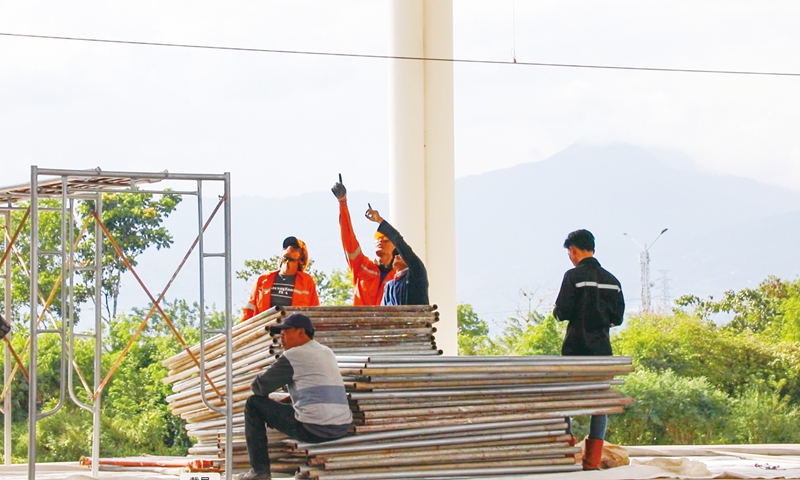
Indonesian workers are busy working at a construction site for the Tegalluar Station, Bandung, Indonesia.Photo: He Zhuoqian/GT
As the start date draws near, inaugurating the project will be a "special moment" for Chinese engineers and executives like Zhang, as well as Indonesian people whose expectations on the project are elevating day by day.
The HSR is a vivid display of the various principles underpinning the development of BRI over the past decade, as the Chinese and Indonesian participants have been working to overcome challenges and consolidate mutually beneficial cooperation. It also illustrates how the China-proposed BRI synergizes with participating countries' development strategy, such as the Indonesia's Global Maritime Fulcrum strategy.
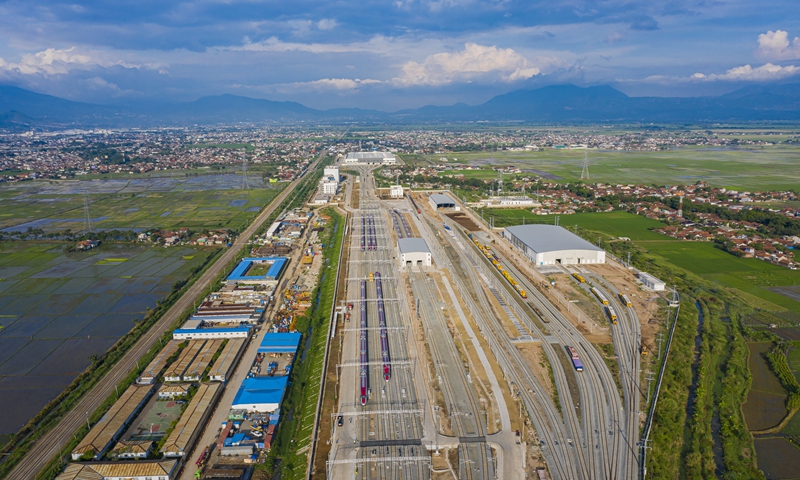
An overlook at the Tegalluar Station, Bandung, Indonesia Photo: Ren Weiyun


